Regardless of how big or small, or how new or old, your business is, getting your finances sorted is vital.
Failing to get these basics in order is like setting off for a run without tying your shoelaces. You might make it through the front door if you’re lucky, but pretty soon, you are going to trip up and fall flat on your face!
With the end of financial year out of the way and a new year stretching ahead of you, now is the perfect time to make sure you have those finances sorted.
If you are not quite sure where to start, then don’t stress!
We’ve got you covered with some of the essential steps to get financially organised and hit the ground running.
Finances 101: How To Get Them In Order
Open A Separate Business Account
If you’re just starting out, it can be tempting to use your personal account and credit card to take care of payments. But trust us, even if you promise to stay on top of your transactions, it won’t end well!
Open a separate business account to keep track of exactly what cash you have coming in and going out. You may also choose to get a dedicated credit card to start building good credit. By having your business accounts separate from your personal, you will save yourself a lot of time (and headaches!) by keeping everything in one place.
Invest In Accounting Software
No matter how small your business is, accounting software will make life easier. You can access real-time financial information anywhere, at any time, and it will be much easier to manage and keep track of everything.
There are plenty of options depending on your budget and your requirements. Xero and MYOB are great for capturing a comprehensive picture of your financial situation, these are recommended for businesses with a lot of transactions or turnover. Whereas Wave is great for smaller businesses who simply want to keep track of their invoicing, oh and it’s free to use.
Organise Your Bookkeeping
Assuming you’ve got a way with numbers and enjoy balancing the books, you might choose to manage the bookkeeping yourself. Just make sure you schedule time to do this daily or weekly with no excuses. When you start letting it slide because you have too many other things to do, you are losing control of your finances.
Don’t be afraid to outsource this part of your financial management. Though it requires a bit of financial commitment to start with, it will pay off in time and money saved in the long run. You know an expert will be looking after one of your most important business functions. Plus, you’ll have more time to focus on growing your business.
Make A Budget
Yes, this sounds tedious, but you really can’t operate a business without a budget. The only way you can ensure positive cash flow, plan for emergencies, and grow your business is to have a plan of action. Budgets don’t have to account for every cent spent. Rather, they are a framework for keeping your spending on track.
Start Saving
It’s never too early to save for a rainy day. As soon as possible, you should start tucking away a percentage of your profits to cover tax and prepare for unforeseen emergencies that could affect your business. As a rule, stash 25% of profits away every week or month for taxes, and endeavour to save enough money to see you through three months of hard times.
Get Invoice Savvy
Get your invoices sorted ASAP to get the cash flowing. Most accounting software comes with invoicing built-in. Use it and stay on top of it!
But, don’t rely solely on your accounting system. Develop your own good invoicing practices to keep the cash flowing in and out of your business. Send your invoices out as soon as practical – at the beginning of a job, when a milestone is it, or at completion.
You will also want to set clear payment terms and communicate those to your clients. Remember that it is not enough to simply send your invoice out, you always need to follow up on the unpaid ones too.
Understand Your Essential Financial Reports
Even if you delegate or outsource your accounting, you should have a solid understanding of how the reports work so you can assess how your business is going at any point.
Start by getting your head around your budget, your cash flow statement, your profit and loss statement, and your balance sheet.
Plan, Plan, Plan
Plan as far ahead as possible. If you want to stay ahead of the competition, you should be forecasting and goalsetting as much as five years ahead. Use the reports and your financial info to help you make long-term decisions for your business.
It also doesn’t hurt to seek the advice of your accountant or a business coach in this planning phase. They can help you with “bigger picture” goals and to look beyond the here and the now.
Finances are an important aspect to get right in any business. So, you don’t want to mess around with them. If you are time poor or unsure what you are doing, then the best option is to outsource to an expert.
The team here at Admin Army are the bookkeeping experts you have been looking for! We wage war on the tasks that you don’t like to do every day so that you can focus on your core business without worry. Get in touch with us today to see how we can take the stress out of your finances and make sure they are always in order for you.
